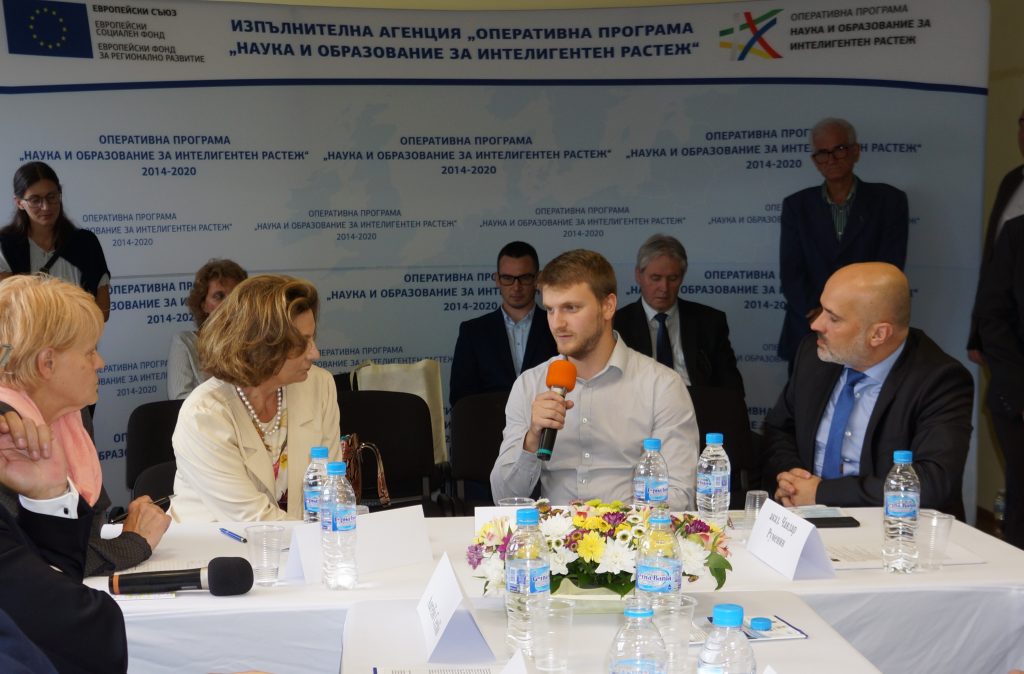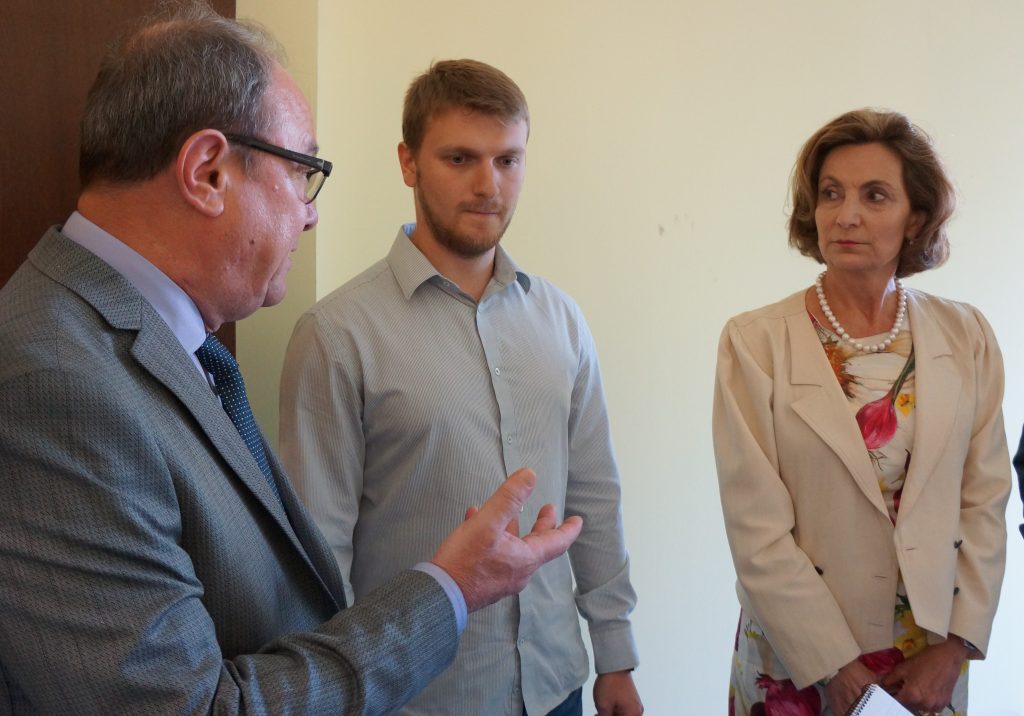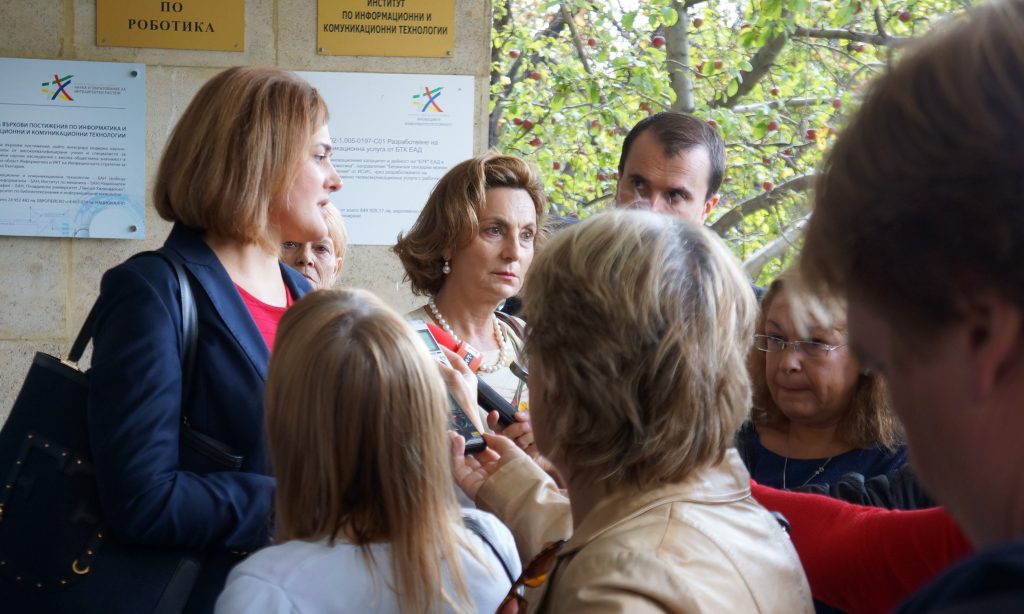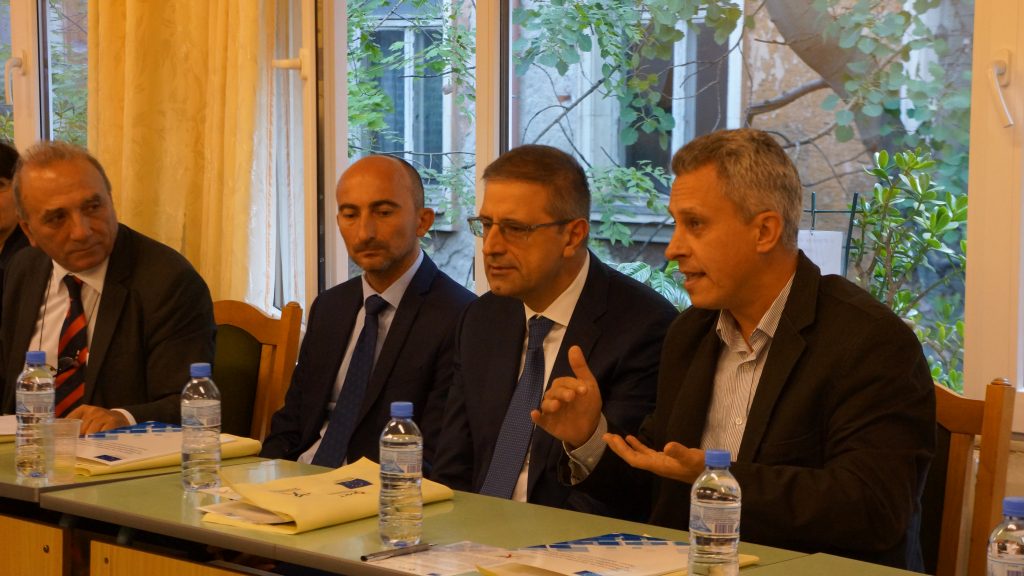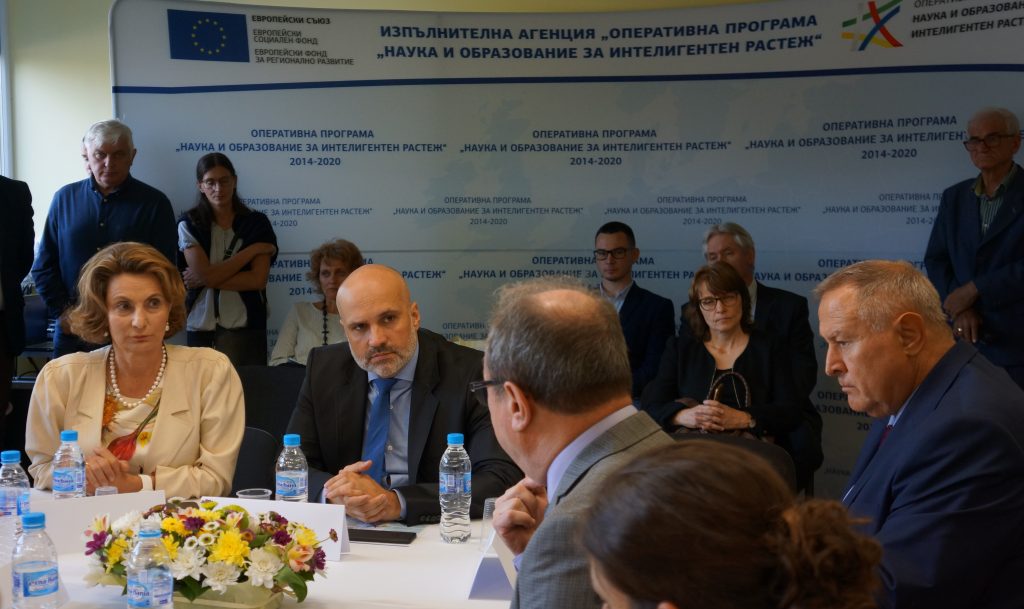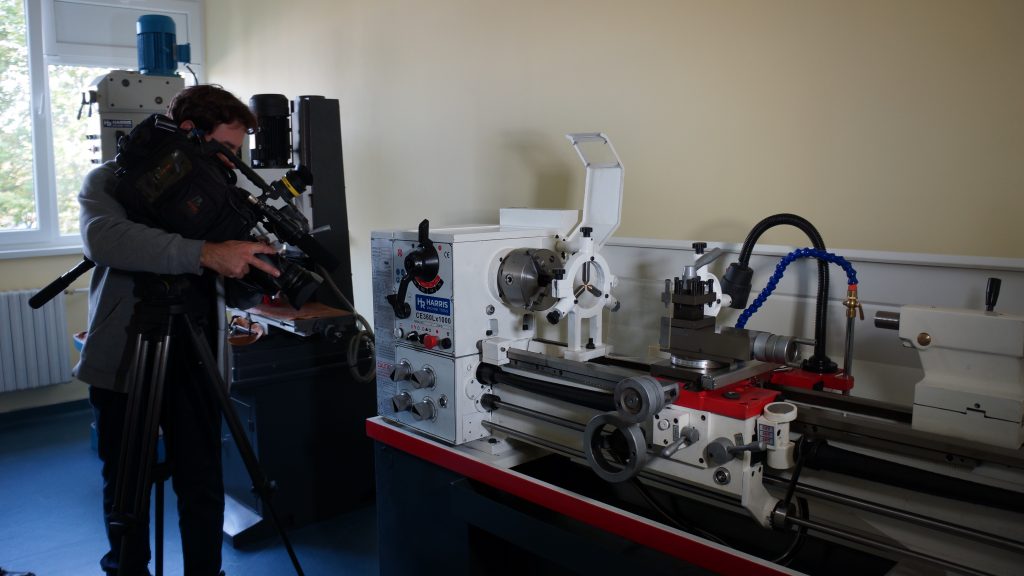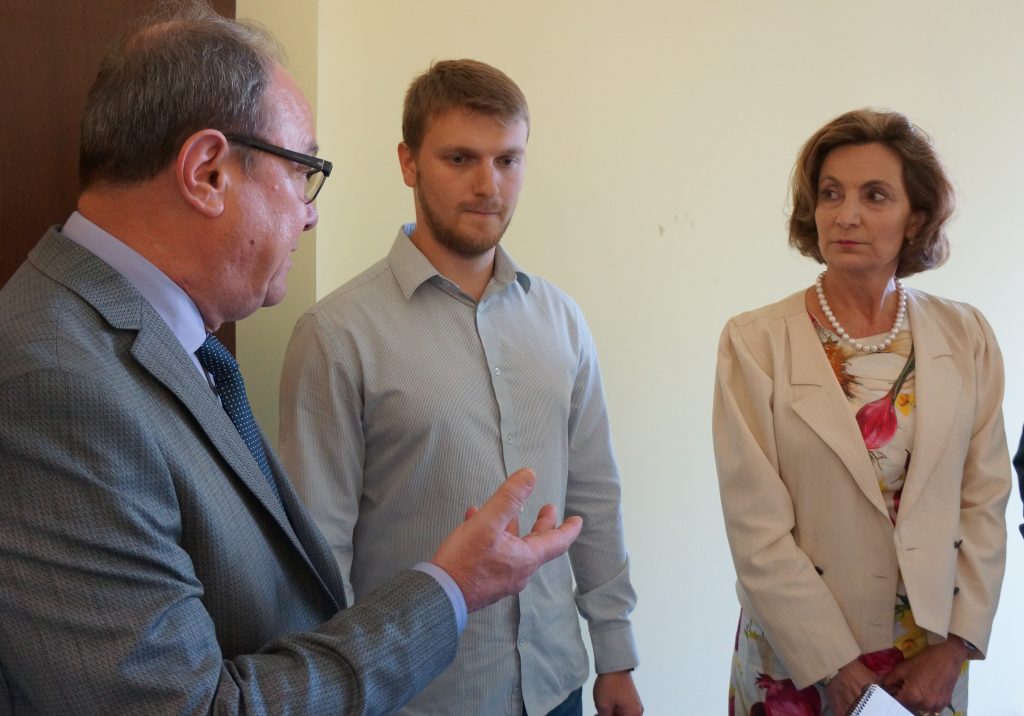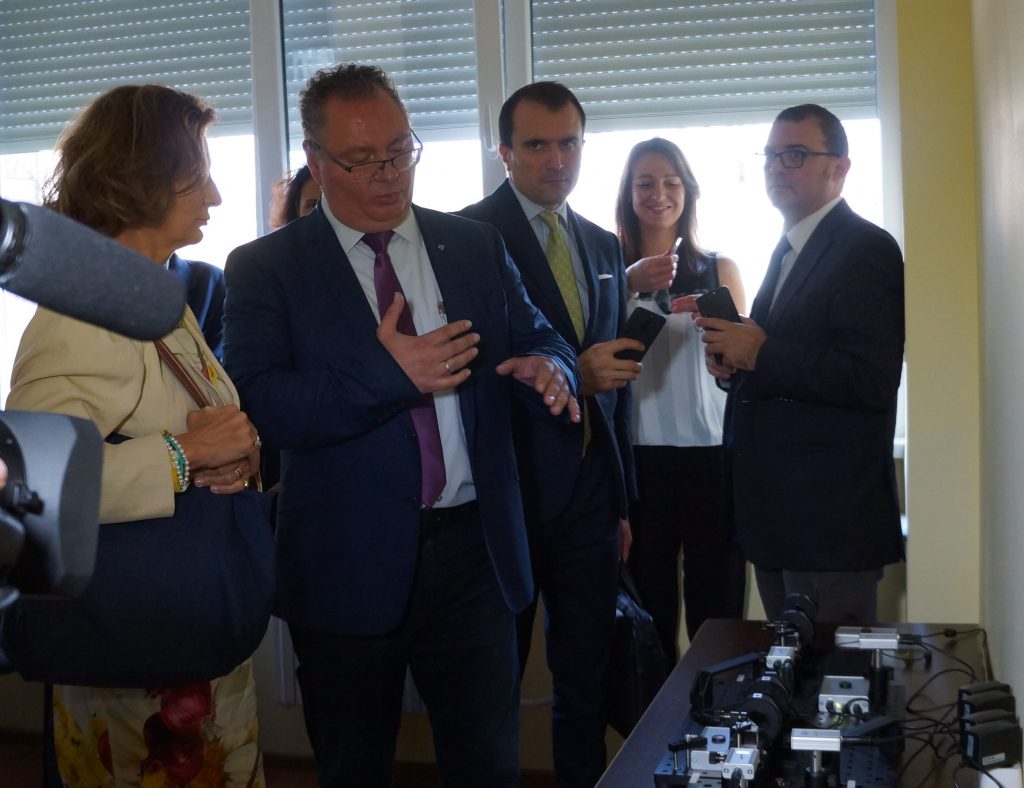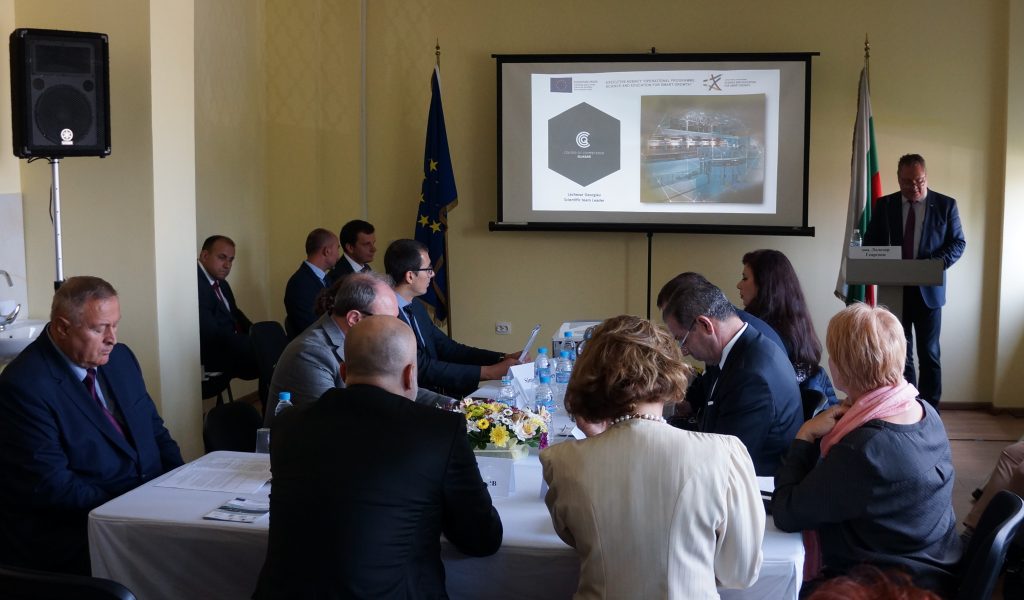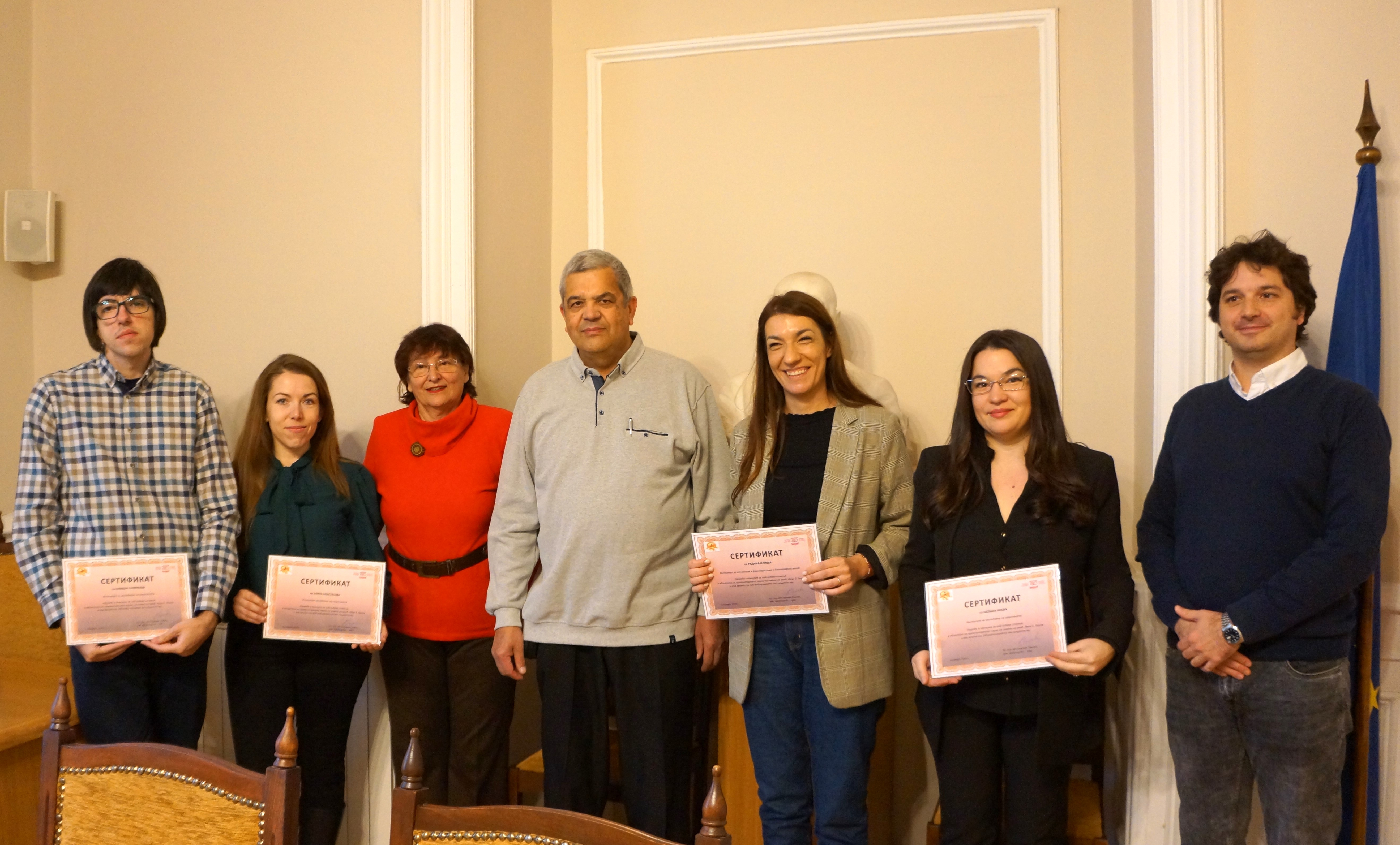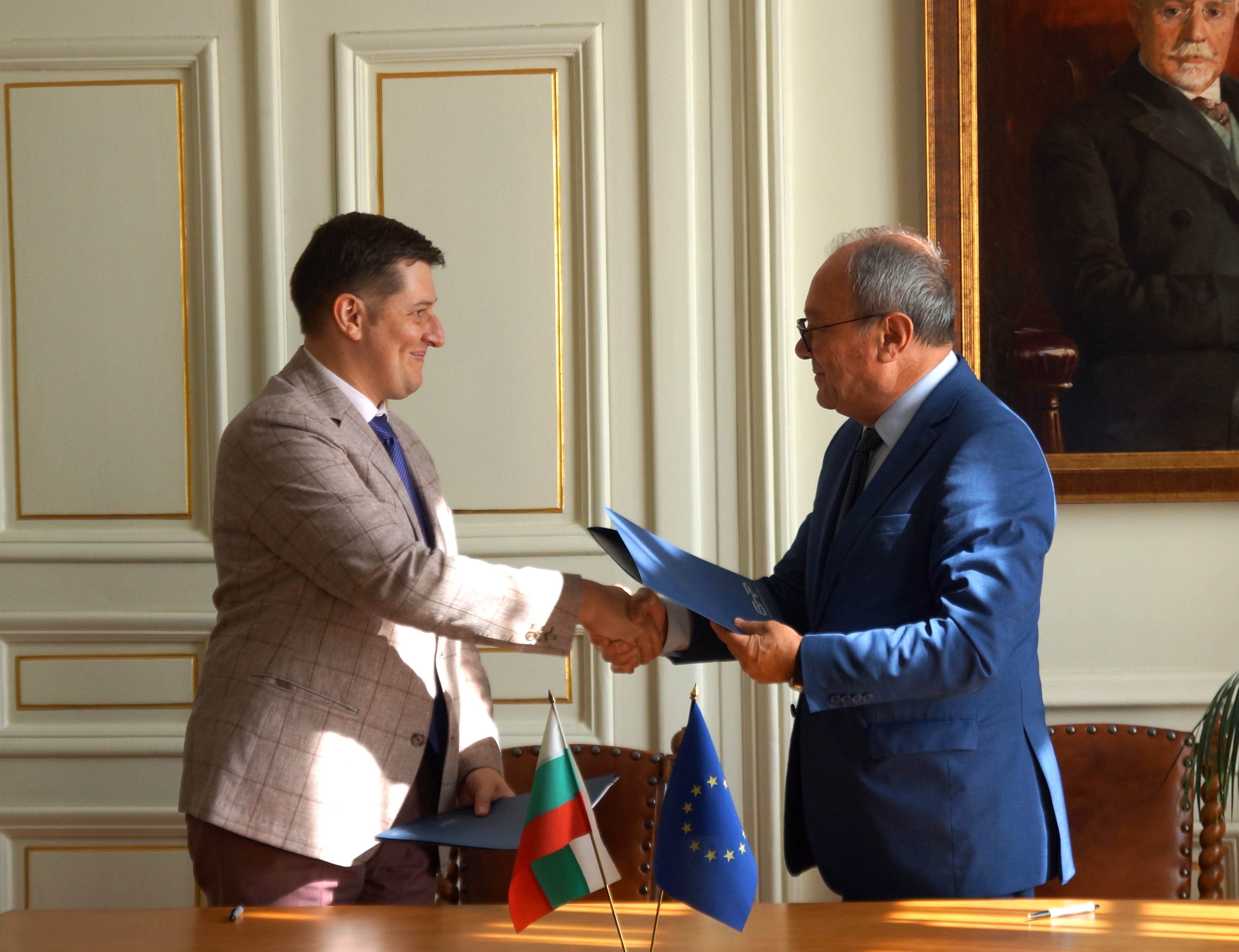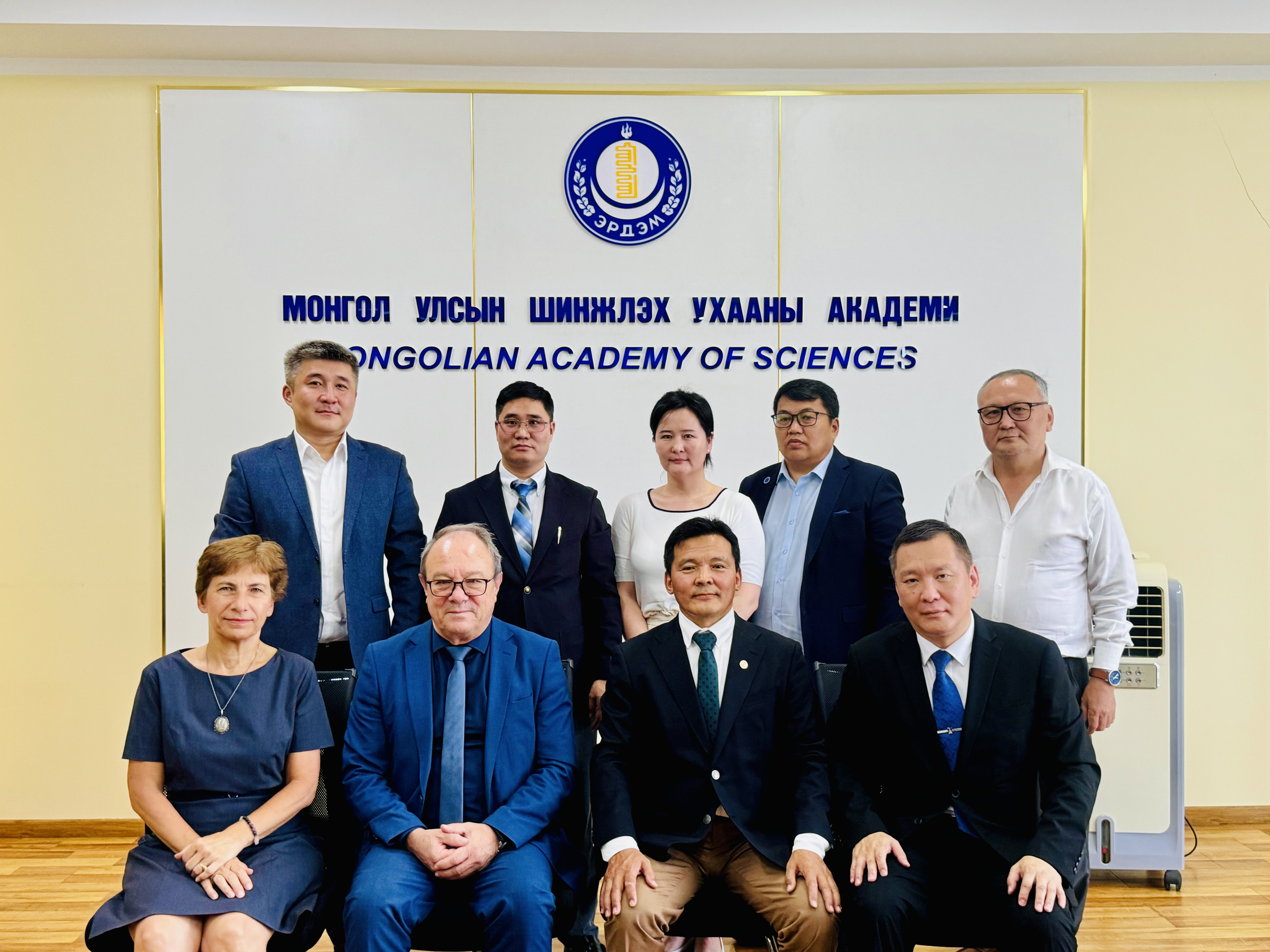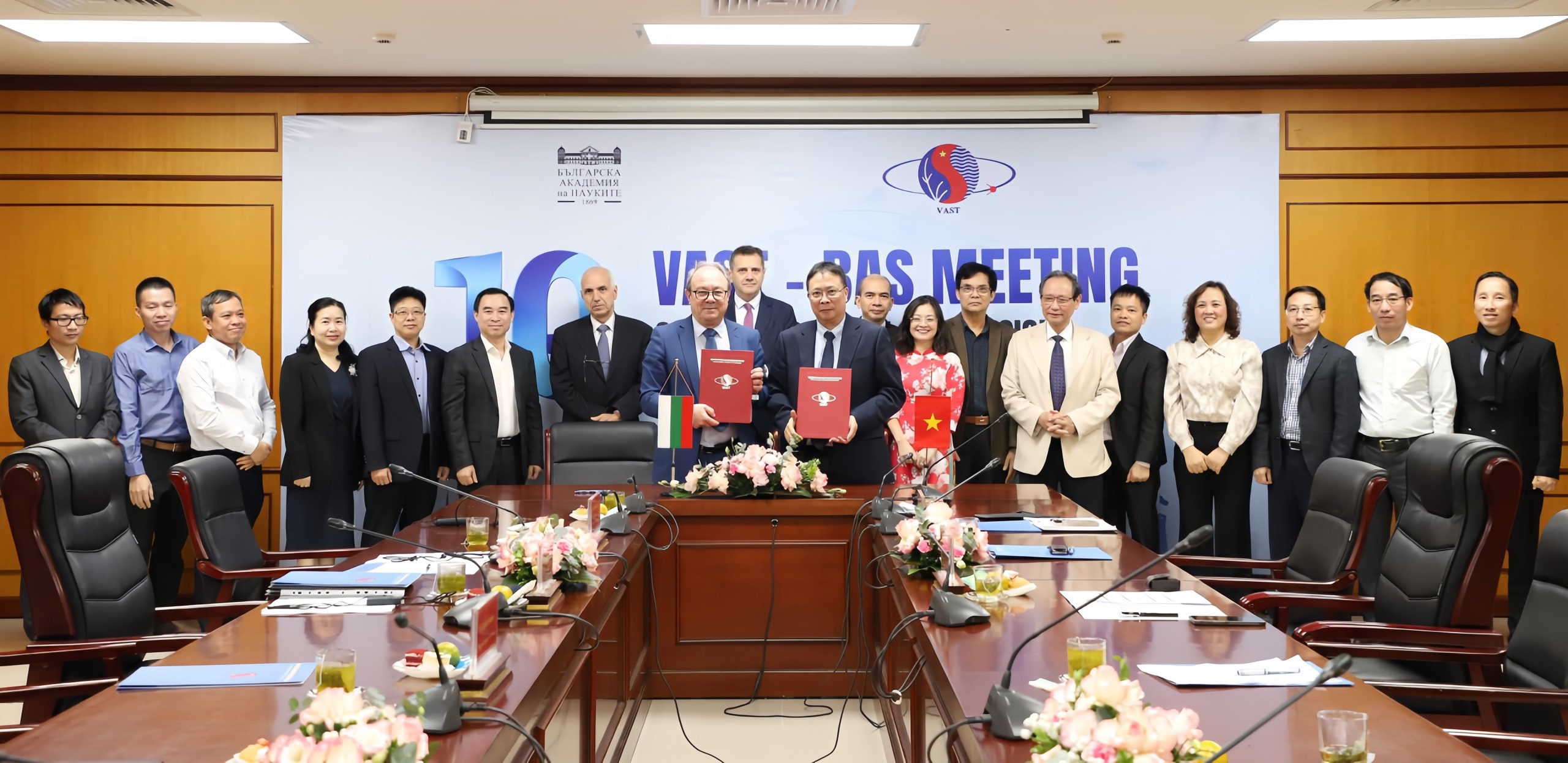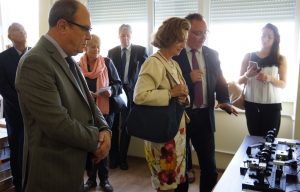 The implementation of three projects for the construction and development of centers of excellence and centers of competence was presented by BAS to a delegation from the European Commission led by Vittoria Alliata di Villafranca. She is responsible for strengthening the administrative capacity and implementation of the programs in Bulgaria, Croatia, Romania and Hungary. The funding is under the Operational Program “Science and Education for Smart Growth” 2014-2020. The presentation was also attended by the Deputy Minister of Education and Science Karina Angelieva.
The implementation of three projects for the construction and development of centers of excellence and centers of competence was presented by BAS to a delegation from the European Commission led by Vittoria Alliata di Villafranca. She is responsible for strengthening the administrative capacity and implementation of the programs in Bulgaria, Croatia, Romania and Hungary. The funding is under the Operational Program “Science and Education for Smart Growth” 2014-2020. The presentation was also attended by the Deputy Minister of Education and Science Karina Angelieva.
The project “Clean technologies for sustainable environment – waters, waste, energy for circular economy” was presented at the Institute of Organic Chemistry with Center for Phytochemistry of BAS (IOCCP – BAS). The coordinator, Prof. Yana Topalova from Sofia University “St. Kliment Ohridski” said that the Center of Competence will excel in the development of products, services and clean technologies with high resource and energy efficiency and significant economic, social and environmental added value. IOCCP-BAS is a project partner. At the institute, some of the purchased equipment that scientists are already working with was demonstrated.
At the Institute of Information and Communication Technologies of BAS, the delegation got acquainted with the construction of the Center for Excellence in Informatics and Information and Communication Technologies, funded by SESG OP. The Head of the Center, corr.-mem. Svetozar Margenov, announced the forthcoming delivery of a high-performance, highly energy-efficient computing system that will be integrated into Europe’s electronic infrastructures.
The project “Building and Development of the Competence Center “Quantum Communication, Intelligent Security Systems and Risk Management” (Quasar)” provides for quantum communication, building intelligent security and risk management systems and multi-sensor technologies. At the Institute of Robotics of BAS, EC representatives got acquainted with some of the equipment supplied under the project. Assoc. Prof. Lachezar Georgiev and Acad. Chavdar Roumenin explained to the EC examiners the progress so far.
The challenges we face in projects relate mainly to working with businesses – how these investments in infrastructure and scientific capacity can help the industry become more innovative. This was said by the Deputy Minister of Education and Science Karina Angelieva who added that our country needs more investments in science and raising the status of researchers.
At the end of her visit, Vittoria Alliata di Villafranca announced that the achievements of the projects in Bulgaria could serve as an example to other countries in Europe. It is important that young people stay in Bulgaria and return to the country after studying abroad to contribute to the development of the local economy, she added.
The President of BAS Academician Julian Revalski attended the presentation at the Institute of Robotics. The Bulgarian Academy of Sciences is a major participant in the projects funded by SESG OP.


